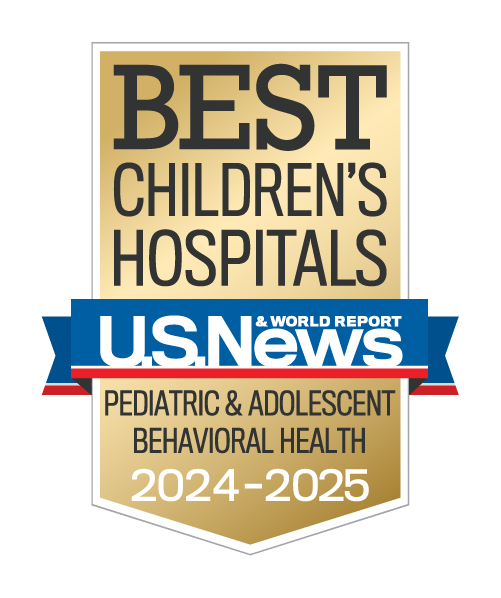Age-related developmental changes in a child’s life may poise new questions and bring new challenges for parents to navigate. And if a child has autism spectrum disorder (ASD), parents may have to navigate their development even more carefully.
Whatever the age your child may be, the applied behavior analysis (ABA) therapists at the Thompson Autism and Neurodevelopmental Center at CHOC have mapped out some habits to consider and resources to utilize on your child’s journey with autism.
In this article, they listed some examples of activities you can do with your child to encourage healthy habits across developmental periods.
Building healthy habits for preschool-age children with autism
- Assign simple chores like separating laundry by color and putting away household items.
- Build independence in small ways like giving choices when available, adding an ingredient to a meal or assisting in taking care of pets.
- Actively engage in community activities like at the YMCA, farmer’s markets or volunteer groups.
- Encourage the development of individual skills, talents and interests.
- Read books that explore various careers.
Building healthy habits for elementary school-age children with autism
- Continue to expect and assign chores like making the bed, feeding the pet or washing dishes.
- Encourage friendships at school, outside of school or through sports teams or activities.
- Take field trips to colleges /college fairs. You can even take virtual college tours here: 15 virtual college campus tours to explore from home.
- Give exposure to trade jobs via virtual industry tours through Search — Google Arts & Culture.
- Fill out career/hobby interest surveys like this one: Career interest explorer.
Building healthy habits for preteens with autism
- Encourage learning about and accepting disability.
- Ensure that your child understands medications if they are required to take them.
- Encourage friendships and social skills.
- Learn about social media safety through CHOC’s social media safety tips.
- Slowly increase freedom with time with friends and let them build their own schedules.
- Practice independent living skills through household tasks and preparing meals.
Building healthy habits for teens with autism
- Have your child actively participate in individualized education programs (IEPs) or doctor appointments.
- Encourage your child’s use of self-advocacy skills (being able to speak on behalf of their needs and rights).
- Practice travel skills and how to safely navigate their community.
- Sign up for community classes/workshops. Programs and information for people with disabilities in Orange County is a great resource.
- Begin to look for adult health care providers and health insurance options.
Building healthy habits for young adults with autism
Career development:
- Research jobs or research education for jobs of your child’s interest.
- Access transition planning services at your child’s school. Build a transition planning portfolio with transition assessments.
- Develop pre-employment skills:
- Explore or encourage your child to apply for paid and unpaid apprenticeships and internships.
- Help your child complete career certificates needed for career advancement.
- Make informed career/ training choices based on your child’s interests and employment options (e.g., labor market availability). Avoid pursuing obsolete jobs.
What parents/guardians should consider:
- Secure your child’s driver’s license, and/or develop a transportation or mobility plan to access community resources.
- Practice benefits planning, where applicable. You may want to apply for Supplemental Security Income (SSI), if appropriate.
- Look into and apply for conservatorship opportunities, if applicable. Visit The Superior Court of California – County of Orange for more information.
- Ensure that your child maintains a safe social media presence.
Young adult employment/career opportunities and resource pages:
- Workforce Innovation and Opportunity Act (WIOA) Young Adult Program: READY S.E.T. OC | OC Workforce & Economic Development Division
- North Orange Continuing Education program for Adults with Disabilities: Program for Adults with Disabilities – North Orange Continuing Education
- Transition CA program at Chapman University: Transition Programs – Chapman University | Transition CA
- Orange County Regional Center transition program/resource pages: Transition at Age 18/22 | Regional Center of Orange County and Community Resources | Regional Center of Orange County
- Medical Assistance/Continued medical care transition program: CHOC Adolescent to Adult Bridge Program (A2B)
For more assistance, visit The Association for Science in Autism Treatment (ASAT), an international resource for all things related to autism spectrum disorder.
This non-exhaustive list was made in collaboration with other professional staff at the Thompson Autism and Neurodevelopmental Center at CHOC with examples and links to helpful resources to utilize along the way.
Get more expert health advice delivered to your inbox monthly by subscribing to the KidsHealth newsletter here.

Learn more about the Thompson Autism and Neurodevelopmental Center at CHOC
CHOC Hospital was named one of the nation’s best children’s hospitals by U.S. News & World Report in its 2024-25 Best Children’s Hospitals rankings and ranked in the behavioral health specialty.





